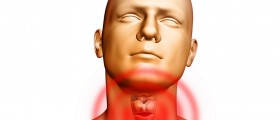
Mental retardation is a condition diagnosed at early age, before the age of 18. Basically, it manifests through intelligence and adaptive functioning which is below the level referred to as average. Additionally, numerous other neurodevelopmental problems can appear in mentally retarded people.
Due to the fact that mental retardation, as a term, carries a certain stigma and negative social connotation, a new term is expected to be given to this condition as soon as possible, since the current terminology can hardly remain adequate.
Statistical Data regarding Mental Retardation
About, 10% of children suffer from some sort of a learning impairment. Out of these, about 3% show certain degrees of mental retardation. Since the developmental period of every child lasts from the birth to the 18 year of life, symptoms of mental retardation usually show up somewhere during this time.
In order for a child to be diagnosed as mentally retarded, it has to score lower than 70 on an IQ test and show at least two deviations regarding adaptive skills and functional life skills. This means that they need to show problems in areas of communications, self-care, communication and relationship skills, work, academic skills, leisure, safety and general health.
Treatment for Mental Retardation
The critical period for intervention is between the birth and the 3rd year of life. Therefore, the symptoms of mental retardation can be dealt with if medical support and treatment are administered in this period. Depending on the severity of mental impairment, the treatment needs to be carefully planned out. Therefore, it may involve help from special teachers, language, behavioral and occupational therapists, as well as numerous support groups and the very families of people affected. Also, education modifications and treatment with certain medications may be an option.
Additional Facts about Mental Retardation
Some types of mental retardation can lead to pain that patients experience. Thus, the affected babies may make grimaces, have inadequate posture, be aggressive and prone to rocking their bodies while in fetal position. Parents should notice these phenomena and react timely.
Also, underlying health problems like GERD, constipation, urinary tract infection, spasticity, pressure sores and fractures may be common with mentally retarded people.
People with mental retardation may understand certain information best if it is given with written, drawn or spoken prompts as well as gestures.
Sometimes, the anesthetics that mentally retarded patients take may lead to side-effects which may affect their well-being negatively. Therefore, the type and dosage of these drugs need to be adequate.
Finally, many mentally retarded individuals have experienced worsening of their condition due to exposure to sexual, mental or physical abuse.

















Your thoughts on this
Loading...